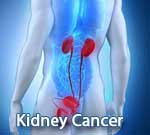Brain Tumor, Central Nervous System Embryonal Tumors, Childhood
Supportive Care
At any stage of disease, people with brain tumors receive supportive care to prevent or control problems and to improve their comfort and quality of life during treatment. Patients may have treatment to control pain and other symptoms of a brain tumor, to relieve the side effects of therapy, and to ease emotional problems.
These are common types of supportive care for people with brain tumors:
- Steroids — Most patients with brain tumors need steroids to help relieve swelling of the brain.
- Anticonvulsant medicine — Brain tumors can cause seizures. Patients may take an anticonvulsant medicine to prevent or control seizures.
- Shunt — If fluid builds up in the brain, the surgeon may place a shunt to drain the fluid. Information about shunts is under "Surgery" in the "Side Effects" section
Many people with brain tumors receive supportive care along with treatments intended to slow the progress of the disease. Some decide not to have antitumor treatment and receive only supportive care to manage their symptoms
Rehabilitation
Rehabilitation can be a very important part of the treatment plan. The goals of rehabilitation depend on the person's needs and how the tumor has affected daily activities. The health care team makes every effort to help the patient return to normal activities as soon as possible. Several types of therapists can help:
Physical therapists—Brain tumors and their treatment may cause paralysis. They may also cause weakness and problems with balance. Physical therapists help patients regain strength and balance.
Speech therapists—Speech therapists help patients who have trouble speaking, expressing thoughts, or swallowing.
Occupational therapists—Occupational therapists help patients learn to manage activities of daily living, such as eating, using the toilet, bathing, and dressing.
Children with brain tumors may have special needs. Sometimes children have tutors in the hospital or at home. Children who have problems learning or remembering what they learn may need tutors or special classes when they return to school
Follow up Care
Regular follow up is very important after treatment for a brain tumor. The doctor checks closely to make sure that the tumor has not returned. Checkups may include careful physical and neurologic exams. From time to time, the patient may have MRI or CT scans. If the patient has a shunt, the doctor checks to see that it is working well. The doctor can explain the follow up plan—how often the patient must visit the doctor and what tests will be needed.
Back to "Brain Tumor, Central Nervous System Embryonal Tumors"





































